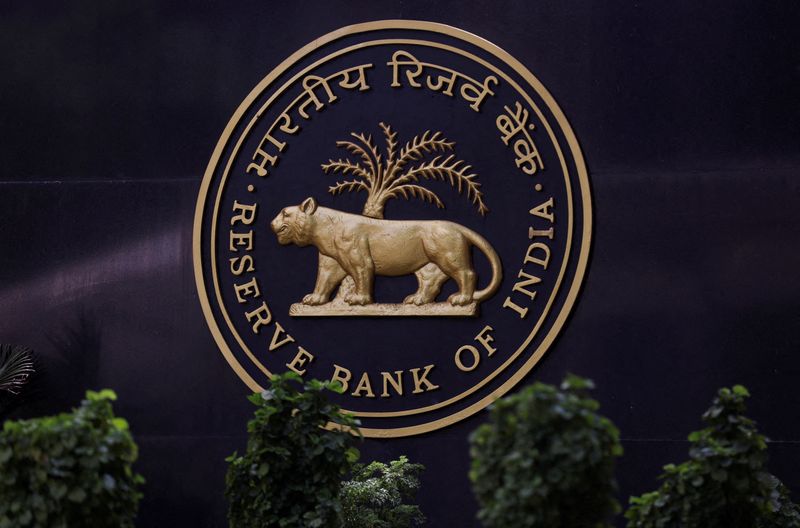Month: July 2024
MARA Purchases $100 Million of Bitcoin, Adopts HODL Strategy
MARA (NASDAQ: MARA), a leader in leveraging digital asset compute for energy transformation, has purchased $100 million worth of Bitcoin, bringing its total holdings to over 20,000 BTC, according to a press release sent to Bitcoin Magazine.
The company also announced a new treasury policy to adopt a full HODL approach, retaining all Bitcoin mined and making periodic strategic purchases.
“Adopting a full HODL strategy reflects our confidence in the long-term value of bitcoin,” stated Fred Thiel, MARA’s chairman and CEO. “We believe bitcoin is the world’s best treasury reserve asset and support the idea of sovereign wealth funds holding it. We encourage governments and corporations to all hold bitcoin as a reserve asset.”
MARA said it aims to leverage its technological expertise to support Bitcoin and the broader digital asset ecosystem.
“Prior to last year, the company used to hold all of its bitcoin,” said Salman Khan, MARA’s chief financial officer in the press release. “Given Bitcoin’s current tailwinds, including increased institutional support and an improving macro environment, we are once again implementing this strategy and focusing on growing the amount we hold on our balance sheet. Bitcoin’s recent price decline, coupled with the strength of our balance sheet, afforded us an opportunity to add to our holdings. We look forward to continuing to leverage our technological expertise to support Bitcoin and distributed digital asset ecosystems.”
Just last month, MARA announced that it was using the heat generated from its Bitcoin mining to heat a town of 11,000 in Finland.
JUST IN: Marathon is now warming a town of over 11,000 in Finland using heat from #Bitcoin mining 🤯 🇫🇮
— Bitcoin Magazine (@BitcoinMagazine) June 20, 2024
Investors turn long on Singapore dollar after 7 months; bearish bets on Asian FX ease – Reuters poll
Post Content
Dollar slips ahead of GDP data; euro rises and yen surges
Post Content
Japanese officials quiet on forex as yen sharply rebounds
Post Content
India cenbank may prefer mild rupee weakness to correct overvaluation, BofA says
Post Content
Japan’s novel FX intervention throws off investors
Post Content
Asia FX muted as dollar dips ahead of econ. data; yen surges
Post Content
Dollar falls, short yen trades squared ahead of BOJ and Fed meetings
Post Content
Alby: A Hub For The Bitcoin And Lightning Economy
Company Name: Alby
Founders: Michael Bumann, Moritz Kaminski and René Aaron
Date Founded: Open-source project founded in December 2020 / Company founded in March 2022
Location of Headquarters: Fully remote
Amount of Bitcoin Held in Treasury: N/A
Number of Employees: 10
Website: https://getalby.com/
Public or Private? Private
Michael Bumann wants to make it simpler for people to send value across the internet.
This is why he created Alby — an open-source initiative-turned-company best known for its browser extension wallet app, which enables users to send and receive sats via the Lightning Network.
Bumann, a soft-spoken and introspective German web developer with decades of experience in his field, believes that bitcoin should be able to move as freely as information does on the internet. To accomplish this, he’d like to see Lightning integrated into all corners of the web.
“The mission is to make Lightning available within web applications,” Bumann told Bitcoin Magazine. “We want to make this accessible — to have this real deep integration, a very seamless thing in which payments are no longer blocking user experiences.”
Bumann and the team at Alby are currently succeeding in their mission, as Alby is one of the easiest Lightning wallets to both set up and use and has become a go to for creators around the world.
What many don’t know about Alby, though, is that its much more than just a Lightning Wallet.
What is Alby?
“Alby initially was the browser extension [wallet],” said Bumann of the Alby wallet, which lets users a create a convenient LNURL address (e.g., yourname@getalby.com) that they can use for sending and receiving bitcoin over Lightning.
“The goal was to have the browser talk to the Alby extension, which then talks to a node on the Lightning Network. Back then we had mainly LND (an implementation of a Lightning node) and talking to LND from a browser was and still is actually super complicated,” he added.
After some time, Bumann and his team at Alby created a wallet API, which can be used to integrate Lightning payments into any application. Think integrating Lightning payments into your favorite podcasting app to help you get paid as a podcaster.
Alby also provides its users with an LNDHub, which allows them to plug in and manage multiple Lightning accounts via one interface and node.
Many use the Alby browser extension wallet as a custodial wallet, but users can also use it in a non-custodial fashion with Alby Hub, which enables users to connect to Alby via their own node or pay a small fee to have Alby run a node for them.
“Ideally, we move in a direction where it’s easy enough for people to run their own nodes and their own wallets,” said Bumann. “Anything in between is an intermediary step.”
Alby has something for everyone from new users to the most advanced, which is part of the reason why it’s gained so much traction in just two and a half years.
On that note, Alby has grown faster than even Bumann and his team anticipated, prompting them make setting up an Alby account invite-only for the time being, so that they can keep up with demand — a demand that should only grow as Bumann and his team implement Nostr Wallet Connect (NWC).
Nostr Wallet Connect (NWC)
While Bumann acknowledges that Lightning is “still very small” and believes that we’re still in a “research phase” regarding the Layer 2 and its use cases, he sees Nostr Zaps as a great use of Lightning.
Beyond Zaps, though, Bumann and the team at Alby found another way in which Nostr could help further Lightning adoption.
They saw that they could use Nostr relays to send requests to pay Lightning invoices. And so they created a protocol called Nostr Wallet Connect (NWC) in conjunction with the team from Amethyst, a Nostr client.
Over the past few months, Alby has been prepping for the release of its new wallet, which will harness the new and unique capabilities that NWC gives it.
“We are currently about to launch our new self-sovereign Lightning wallet focusing on NWC,” said Bumann.
“It’s a new wallet that focuses on NWC as a protocol to interact with the wallet. It’s different from the typical wallet that has a send button, a receive button and a transaction list,” he added.
“[With this new wallet, users] only have to set up channels, liquidity and their keys only once. Then they can give certain permissions to certain applications and allow, ‘OK, you can receive money in my name. You can send a certain amount of money in my name. Here is a subscription service that I allow to pull $10 from my wallet each month’ — things like that.”
Bumann went on to share that a non-custodial Lightning wallet that accepts and dispenses payments in such a manner would be impossible without NWC. He added that the protocol isn’t necessarily optimized for human use. Instead, it was designed primarily to be connected to other applications, and he believes this will “make many more applications possible.”
“It’s a wallet that’s optimized for being always on, because one of the limitations we have with Lightning is that you have to be online to receive and send [sats],” said Bumann.
“Especially if you want to automate things in other applications, the wallet has to be available. That’s why we said, ‘Optimize for that.’ The user doesn’t need to interact with the application. You get it running once and that’s it,” he added.
This type of wallet can run from your desktop, a server or a cloud provided by Alby. Using the cloud option, the users’ data and keys will be encrypted by nothing more than a password.
What’s Next For Alby?
While Bumann and the Alby team will be fine tuning NWC has it’s rolled out — which will include the release of an NWC mobile app — they’ll also be looking at further ways to take Alby into the future.
Bumann noted that Alby still doesn’t have a plan to release its own mobile app as mobile UI is not well-suited for the integrated UX Alby offers via its browser extension product.
He says that implementing Bolt 12 is “definitely on the list,” though, it doesn’t seem to be his highest priority.
He’s also paying attention to burgeoning ecash systems like Cashu and Fedi and considering how he might be able to incorporate them into Alby.
More than anything, though, he and the team at Alby are paying attention to the feedback that they get from users in efforts to improve their product. To obtain this feedback, Alby prioritizes customer service.
“[Customer service] is also needed because the whole thing that we do is really early,” said Bumann. “It has rough edges, and even Bitcoiners that are excited are still facing problems.”
Bumann and the Alby team work to alleviate these problems in two ways:
“First, [we] trying to make it easier for users to get around these rough edges, to get on the Bitcoin and Lightning train somehow,” he said.
“Second, it’s just super important for us to identify where are people struggling. It’s a great feedback channel. We see it also as like it’s a bit of a collaboration with the users,” he explained.
And when Bumann says “we,” he means it. Despite being a co-founder of Alby, a project that’s grown by leaps and bounds in almost no time at all, he’s remained humble and in touch with those he serves.
“It’s very important that the developers that are in the code and building the features get the user feedback or are close to the user feedback,” said Bumann. “That’s why I, especially in the beginning, [do customer service] and we all still do it.”
Bitcoin Is Cash For The Internet
Bitcoin is much more than a typical online payment system. After all, we have plenty of those: PayPal, Venmo, and the like. Bitcoin and other privately used cryptocurrencies are cash for the internet.
Paper cash is an almost perfect way to pay someone. You don’t need an account. It doesn’t care who you are or what you’re buying. It’s a bearer instrument. I hand you a dollar. Now you have the dollar and I don’t. It’s instant and no one can interfere with the transaction. There is no trusting someone else to make sure the dollar gets to you. And best of all, it’s private. There is no record of that transaction whatsoever. It’s so private that there is an old joke in the cryptocurrency community: If cash were to be invented today, it would be illegal.
For all its benefits, however, paper cash is useless online. To pay someone over the internet, we have come to rely on a system of intermediaries to keep money moving. We put our money in a bank, direct that bank to send money to a company like PayPal, ask PayPal to send the money to another user’s PayPal account, they then finally have to withdraw from PayPal to a bank account from which they could choose to withdraw cash.
Every step in this process is recorded in detail by each involved company and ultimately reported to the government. And we have to rely on the companies to voluntarily execute our transaction, something which history has shown should not be taken for granted.
Unfortunately paper cash is dying as people opt for the convenience of tools like Venmo. Even face-to-face transactions for coffee that would have once been handled with paper cash are now intermediated, that is, recorded, reported, and executed under the rules set by corporations and the government.
The fact that commerce now flows through a relatively small set of intermediaries provides a convenient access point for authoritarians to place pressure needed to control what a populace can and can’t do. This risk might seem remote to those of us in stable democracies, but the reality is that states control financial systems and not all states uphold values of free expression and association.
Bitcoin and other cryptocurrencies offer a solution. They operate in a manner much more similar to cash. They are bearer instruments that can be used privately without an account. They are cash for the internet. And they break the control of intermediaries over our financial lives.
There are of course valid reasons why governments might want to monitor the flow of money and place restrictions on certain transactions. But we have increasingly seen a rise in governments succumbing to the temptation to weaponize their control of intermediaries to contain political dissent. This is the great flaw of regulation through intermediated finance.
When protests erupted in Belarus over a rigged election, the government swiftly cracked down, including through financial punishments. Protestors faced heavy fines, and employers were pressured to fire dissenting employees.
In response, the non-profit BYSOL, based in Belgium, provided financial aid to protestors. However, as the protests were deemed illegal, traditional financial intermediaries, complying with the law, seized protester funds and froze their accounts. Electronic transfers were monitored, and cash was confiscated at the border. BYSOL turned to Bitcoin, allowing protesters to receive funds in personal wallets and make small swaps with locals, evading this net of state mandated financial surveillance.
In Russia, Putin’s opposition was labeled an extremist group, making donations illegal. As in any country, financial intermediaries had no real choice but to comply with the law. These intermediaries had been effectively weaponized to police political activity. Alexei Navalny’s Anti Corruption Foundation turned to cryptocurrency, supercharged with the privacy enhancements provided by tools such as Wasabi Wallet, to survive. Russian citizens could continue putting money behind their opposition to Putin with this powerful new capability.
In Myanmar, the Junta implemented strict Know Your Customer rules and cracked down on physical cash, forcing all economic activities into a surveilled system prone to arbitrary account freezes. In Iran, new rules have been proposed to automatically deduct fines from the bank accounts of women who defy laws mandating a Hijab.
Even in the U.S., this issue could arise. The recent overturning of Roe v. Wade endangers abortion access. If funding abortion services becomes illegal, payment providers might be forced to comply with the law or provide evidence to law enforcement. Many abortion pill websites use services like PayPal and Stripe for payments, and if these services are cut off, cryptocurrency could become a crucial alternative. Similar financial threats to access exist for all hot-button issues. It’s hard to control people but it’s easy to control intermediaries.
Moving beyond direct legal control of intermediaries, it’s also important to consider another flaw in the intermediated financial system. These are private companies that have their own considerations and values. Many of them are publicly traded. This makes them susceptible to the whims of public opinion.
Why would a company like PayPal take on the reputational risk of processing payments to industries that some find unsavory, even if they are legal? There are endless cases of adult creators being kicked off platforms, or marijuana businesses, or outspoken political voices. At the end of the day, it’s a lot easier for them to just kick those people out so they can focus on their core business. If every company makes that same calculation those businesses are effectively killed even if they followed the rules.
Meanwhile cash, both paper and now cryptocurrency, are neutral systems that are immune from the whims of not only authoritarians, but the mob as well. Cryptocurrencies are cash for the internet. You don’t need an account, just a computer and internet access. They can’t have an opinion on what you’re doing. They don’t spy on you. And no one can interfere with your ability to transact with them. They are essential tools for protecting our ability to exist as free people in the digital era and are a check on authoritarianism made so much easier by a centrally intermediated internet.
This is a guest post by Neeraj Agrawal. Opinions expressed are entirely their own and do not necessarily reflect those of BTC Inc or Bitcoin Magazine.









